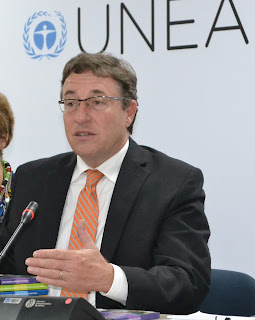The Pan African climate Justice Alliance (PACJA) has again brought the
world’s attention to Africa as thousands of movements from across the globe
gathered in Montreal, Canada in the ongoing World Social Forum (FSM2016)
holding from August 9-14, 2016. The 2016 Forum is with an overarching theme
“Another World Is Possible.”
The goal of the WSF 2016 is to gather
tens of thousands of people from groups in civil society, organizations and
social movements who want to build a sustainable and inclusive world, where
every person and every people has its place and can make its voice heard.




























